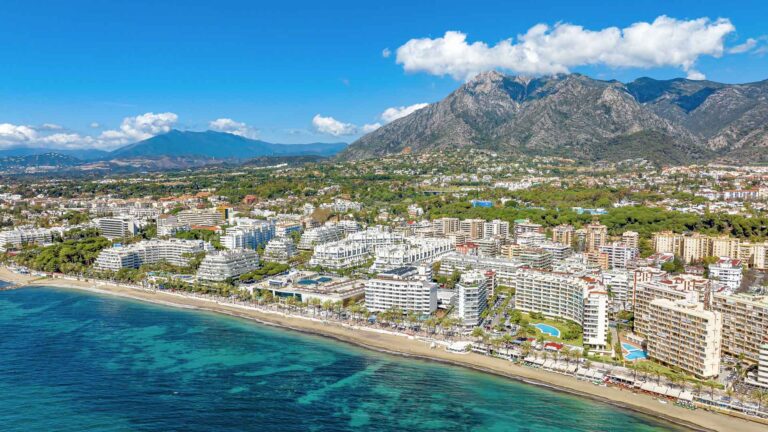Owning a home in Spain remains a cherished dream for locals, expats, and investors alike. While traditional routes such as taking out a mortgage and buying directly from a seller dominate the landscape, more and more buyers are exploring alternative paths to homeownership through creative real estate solutions in Spain. These non-traditional avenues can help you overcome hurdles like high prices, tight lending standards, and ever-changing market conditions. In this comprehensive guide, we’ll explore the many options available and share actionable advice for anyone interested in buying property in Spain differently—whether you’re a first-timer, a non-resident, or simply seeking a more flexible solution.
For those specifically considering flexible agreements, exploring Rent to Own in Spain can open doors to homeownership when you’re not ready or able to buy outright.
Menu list
Why Explore Alternative Paths to Homeownership in Spain?
The Spanish housing market offers exceptional lifestyle and investment potential, but it’s not always easy to access. Rising property prices across coastal, urban, and resort regions have made it increasingly challenging for first-time buyers and newcomers to enter the market. Data from Spain’s Instituto Nacional de Estadística (INE) shows that residential property prices rose by nearly 80% from 2014 to 2023 in major cities like Madrid, Barcelona, and Marbella.
Lending criteria are stricter for non-residents, young professionals, and anyone without long-term contracts or impeccable credit history. Bank of Spain studies show that the average household must dedicate nearly 33% of its gross annual income to mortgage payments, above the OECD recommended maximum of 30%. For expats or self-employed individuals, mortgage approvals can require large down payments—often 30-40%—further limiting access.
Who benefits most from creative real estate solutions in Spain?
- Young professionals and families facing affordability issues or limited savings
- Expats without permanent residency or Spanish income history
- Foreign investors looking for low-commitment options
- Retirees seeking flexibility or phased property ownership
For these buyers, creative and alternative real estate solutions can bridge the gap and enable them to achieve their goal of Spanish homeownership.
Understanding Creative Real Estate Solutions in Spain
Creative real estate solutions refer to flexible, innovative arrangements for acquiring property that don’t follow the traditional purchase-and-mortgage model. These solutions offer new ways to get a foot on the property ladder, while often providing more manageable financial commitments and legal flexibility.
Pros of Non-Traditional Homeownership:
- Lower upfront costs
- Opportunity to “test” a home or area before fully committing
- Increased accessibility for foreigners and people with non-traditional incomes
- Potential for price appreciation before purchase
Cons to Consider:
- Some contracts may be complex or harder to exit
- Legal risks if terms aren’t properly defined
- May not build equity as quickly as direct purchase
- Unpredictable changes in market value over multi-year agreements
That said, for many, the pros far outweigh the cons—especially if you’re well informed and work with reputable agents and legal professionals.
Overview of Popular Alternative Paths to Homeownership in Spain
Lease-to-Own and Rent-to-Own in Spain
Lease-to-own or rent-to-own schemes, known as “alquiler con opción a compra” in Spanish, let you rent a property with the legal option to purchase it later. Part of your monthly rent is often applied toward the down payment or final purchase price.
Key features:
- Secure the right to purchase at a pre-agreed price, usually within 1 to 5 years
- Use the rental period to save additional funds, build credit, and experience the home and neighborhood
- Typical contracts define purchase price, time frame, rent contribution, and obligations for repairs and maintenance
Benefits of rent-to-own:
- No immediate need for a large down payment
- Locks in purchase price, protecting against potential price hikes
- Flexible exit if needs change
Risks:
- If you decide not to buy, you may forfeit part or all of the “option fee” and rent premiums
- Requires clear contracts and legal oversight—Spanish real estate lawyers strongly advise reviewing lease terms before signing
A success story: Consider the experience of Jane, a British expat in Valencia, who entered a rent-to-own agreement in 2020. After renting for 2 years, she successfully exercised her purchase option using her rental credits as a down payment, finally owning her Spanish home without a mortgage.
Housing Cooperatives (Cooperativas de Viviendas)
A housing cooperative is a legal association where a group of people collectively buy land, commission construction, and later acquire property units. Cooperatives are popular among locals, but increasingly attract expats and international buyers.
How cooperatives work in Spain:
- Join a “cooperativa de viviendas” before or during the development phase
- Members pool resources to purchase land and build homes, with an elected board overseeing the project
- Homes are usually delivered at cost, sometimes 10-20% below market value
Advantages:
- Lower costs, due to collective bargaining and absence of developer profits
- Involvement in design and functionality decisions
- Early entry into new neighborhoods or projects
Points to consider:
- Involvement requires patience, as construction can take 1-3 years
- Success depends on sound financial management and reputable partners
Shared ownership is a fractional buying model where you purchase a portion of the property (typically 25-75%) and pay subsidized rent on the remaining share. Over time, you can “staircase” and acquire more shares until you own the property outright.
Key elements:
- Allows buyers with limited capital to enter the property market
- Contracts outline share, rent, and process for increasing ownership
- Ideal for young families and professionals
- Shared ownership models are most common in cities like Madrid, Barcelona, and Malaga
Seller Financing (Venta a Plazos)
Some sellers in Spain offer direct financing, meaning you pay installments over several years instead of relying on a bank mortgage.
Why consider seller financing?
- Useful for buyers who can’t secure bank loans
- Contract terms are flexible and negotiated between buyer and seller
- No early repayment or bank penalty fees
What to check: Always have a notary review the sale agreement for compliance with Spanish property law. Ensure terms like default, interest, and final payment are crystal clear.
Crowdfunding and Property Investment Platforms
Crowdfunding platforms allow multiple investors to pool funds and buy property together, either for personal use or as an investment.
How it works:
- Individuals invest via online platforms, acquiring shares of properties through companies or partnerships
- Usually targeted at vacation homes or rental investments
- Some platforms provide periodic returns from rental income and long-term capital growth
Legal status in Spain: Crowdfunding for property is regulated, and investors must know the difference between collective acquisition for ownership and purely financial investment with no personal usage rights.
Government Programs and Subsidies
The Spanish government offers several assistance programs for first-time buyers, young people, and lower-income families. Regional programs vary, but may include:
- Subsidized mortgages
- Direct financial aid or grants for home purchase
- Reduced taxes and fees for buyers under 35
Applicants must meet specific criteria for income, residency, and purchase price, and the process can sometimes take several months.
Buying Off-Plan (Viviendas Sobre Plano)
Buying off-plan—purchasing a property before it’s built—remains a common alternative to resale homes for both locals and expats in Spain.
How it works:
- Secure a property at today’s prices
- Pay in installments aligned with project milestones
- Often enjoy lower prices and customization options
Risks:
- Requires developer due diligence—prefer projects with bank guarantees and reputable builders
- Timelines can be unpredictable, and not all projects reach completion
Legal and Financial Considerations for Creative Homeownership in Spain
Navigating the legal side of creative real estate solutions in Spain is essential. Most alternative schemes involve contracts much more complex than standard purchases and can trigger unique tax or legal obligations.
Key legal frameworks and contracts:
- Spanish Civil Code governs most private agreements but regional nuances are significant
- Always use a bilingual contract and consult a specialized Spanish property lawyer
- Notarization is usually required for validity and enforceability
Tax implications:
- Property purchase taxes (ITP or VAT) apply to both traditional and creative models
- Receiving rental income or capital gains may attract extra taxation
- Certain subsidies or exemptions apply for first-time buyers, young buyers, and families
Professional advice: Never rely on verbal agreements. Work with officially registered agents, lawyers, and notaries to review all documentation and ensure compliance.





